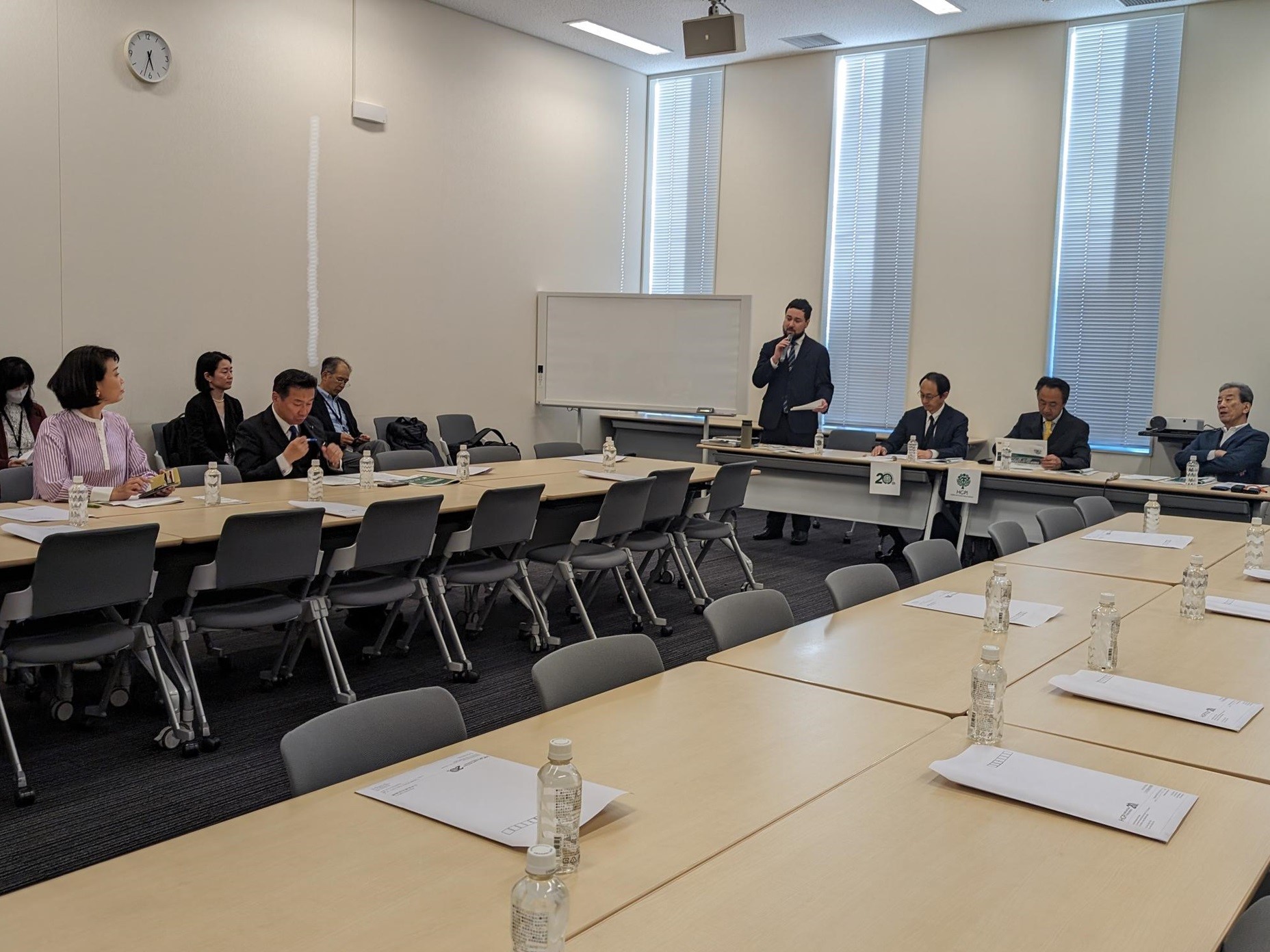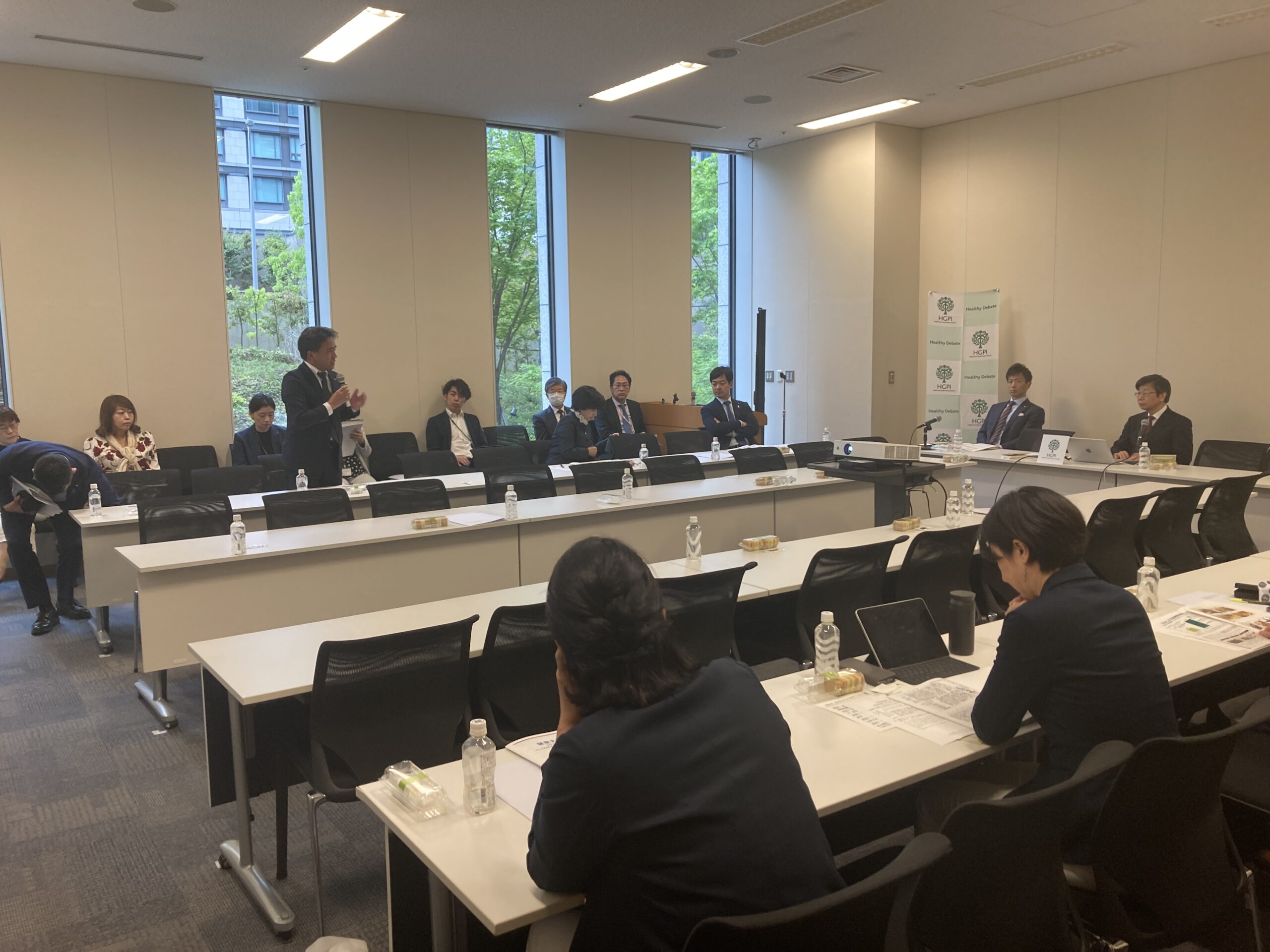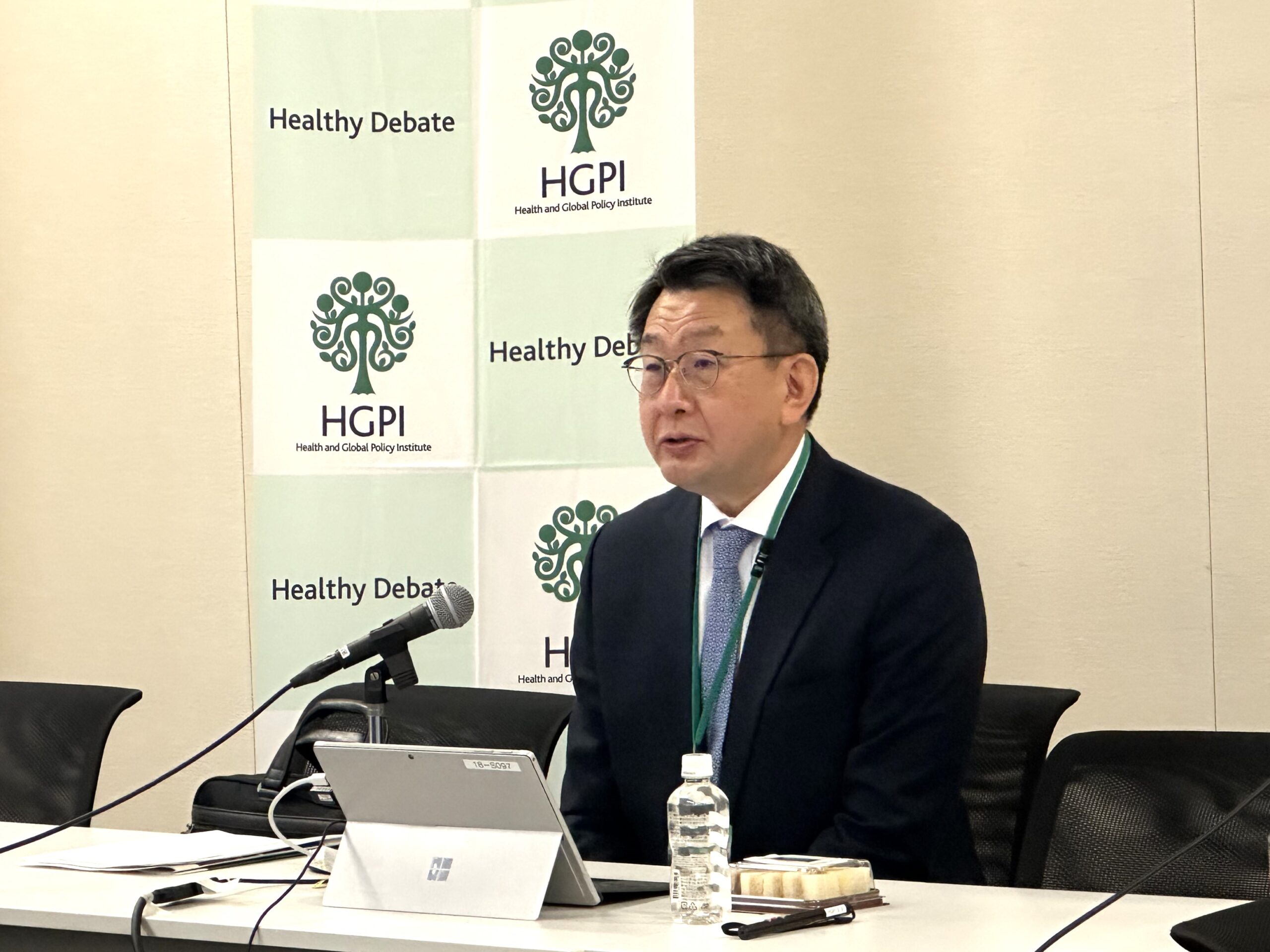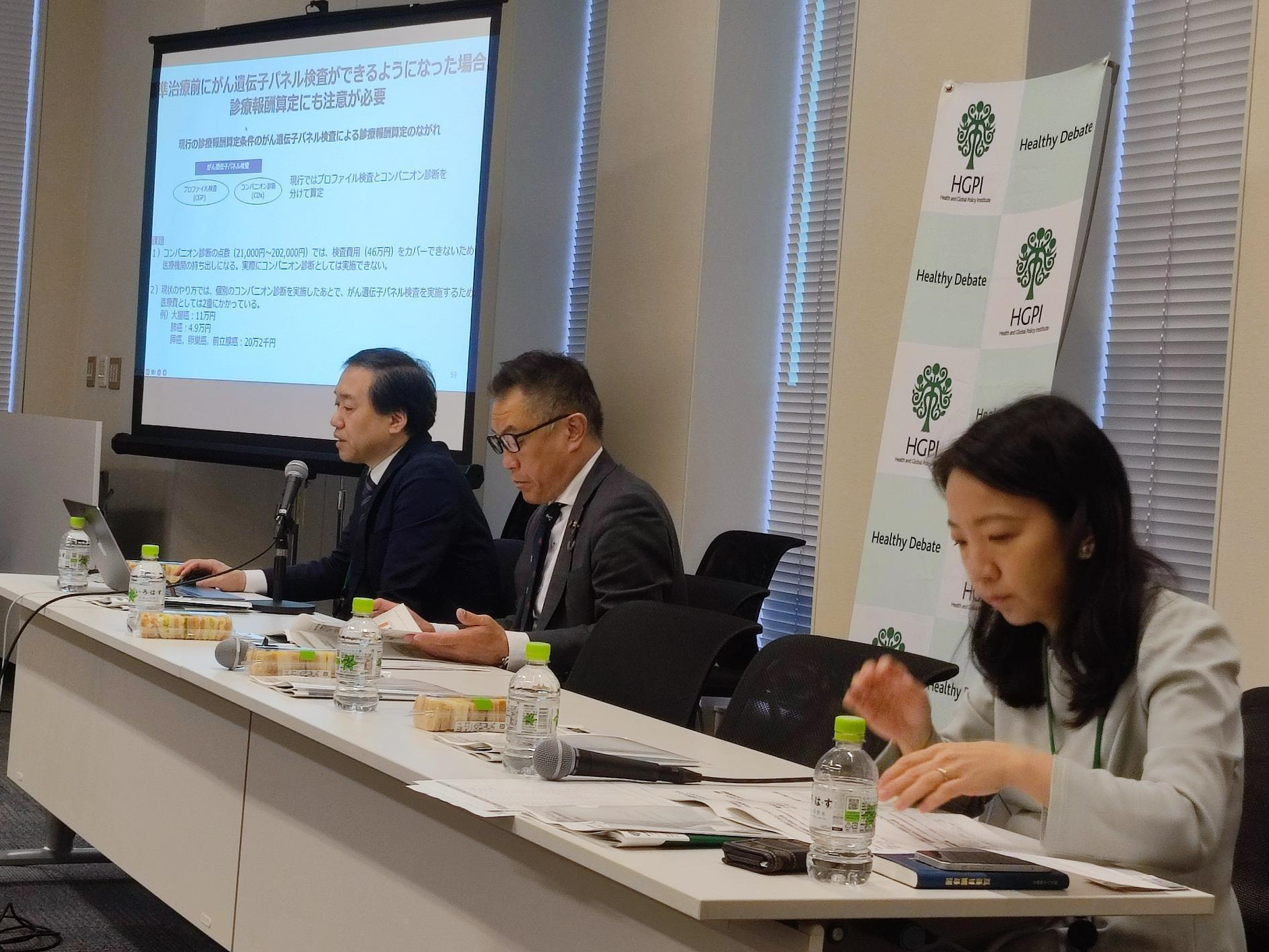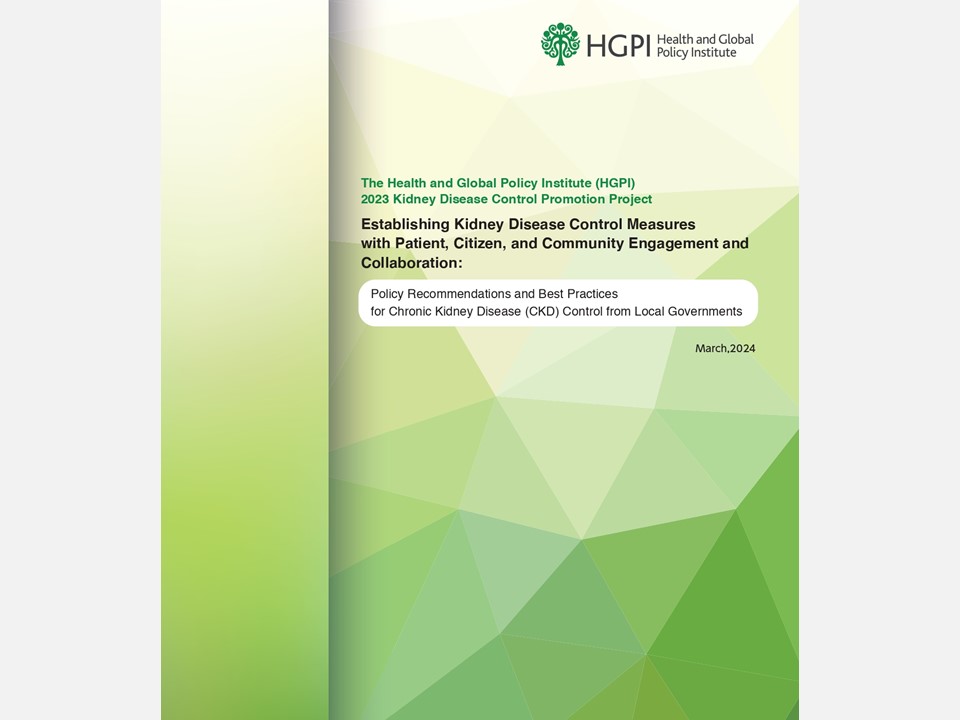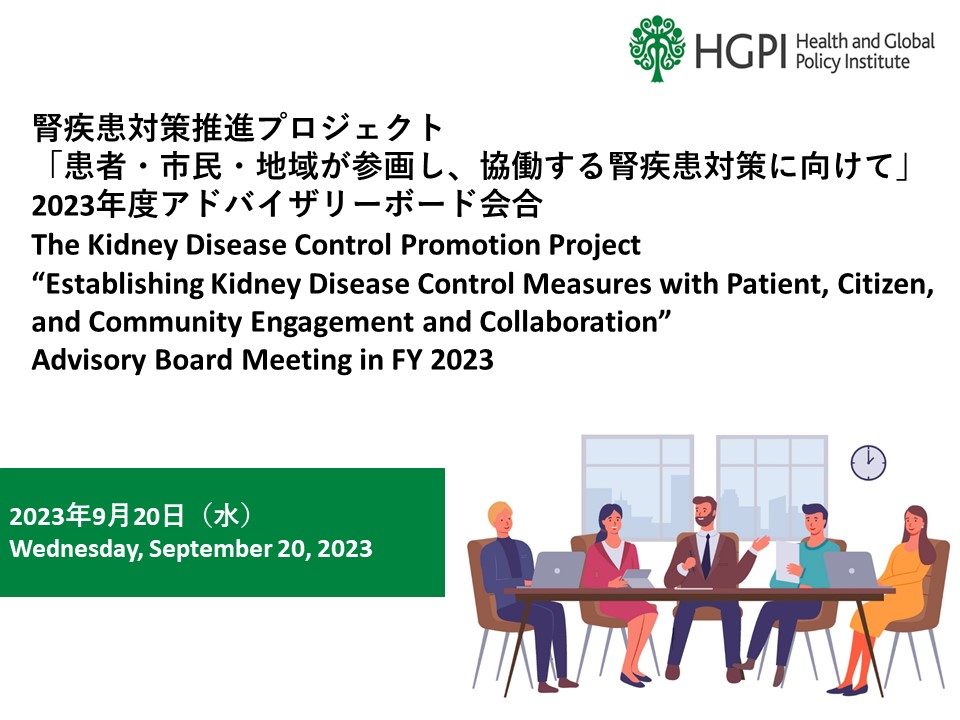[Event Report] Non-partisan Diet Member Briefing – 30-minute Health Policy Update: “Towards Overcoming Kidney Disease: Strengthening Measures Against CKD” (June 7, 2024)
date : 7/17/2024
Tags: Diet Member Briefing, Kidney Disease, NCDs
![[Event Report] Non-partisan Diet Member Briefing – 30-minute Health Policy Update: “Towards Overcoming Kidney Disease: Strengthening Measures Against CKD” (June 7, 2024)](https://hgpi.org/en/wp-content/uploads/sites/2/HGPI_240717_FY2024CKD_DietMemberBriefing_eyechatch.png)
Health and Global Policy Institute (HGPI) hosted an installment of 30-minute Health Policy Update, a series of briefings for Diet members on key health policy issues. This installment was titled, “Towards Overcoming Kidney Disease: Strengthening Measures Against CKD”.
Dr. Naoki Kashihara (Chairman, Japan Kidney Association / Director and Specially-Appointed Professor, Kawasaki Geriatric Medical Center) gave a lecture and provided an overview of the current measures against chronic kidney disease (CKD) and introduced the policy issues that need to be promoted in the future.
Sharing many questions and insights, Diet Members took the opportunity to engage in a robust exchange of opinions during the Q&A session following the lecture.
Key points of the lecture
- Early-stage CKD is characterized by having almost no symptoms. Although the national initiation of dialysis rate is on a downward trend, aside for elderly men, nearly 40,000 people begin dialysis each year and the number of patients undergoing maintenance dialysis currently exceeds 300,000. Furthermore, it is suggested that the number of CKD patients who require dialysis is increasing. Therefore, CKD measures remain a crucial issue to prevent the initiation of dialysis. If CKD progresses to kidney failure requiring dialysis, it costs approximately 6 million yen per person annually in medical expenses.
- To accurately diagnose CKD, it is necessary to measure the value of urinary protein and the serum creatinine level to calculate the estimated glomerular filtration rate (eGFR) but it is not mandatory in general health checkups under the Industrial Safety and Health Act. The possibility remains that CKD in the working population is being overlooked in the workplace, and the inclusion of serum creatinine measurement as a mandatory item during checkups is greatly desired.
- One of the tests to measure kidney function, albuminuria, is covered by insurance for diabetes or early diabetic nephropathy. The expansion of insurance coverage to include CKD not caused by diabetes (which constitutes the majority of CKD) will be greatly beneficial. Additionally, to strengthen and continue measures against chronic kidney disease, the establishment of a national center function within existing centers to oversee these measures will be needed.
- Overcoming CKD requires collaboration among industry, government, academia, and the public. With the revision of medical fees in the fiscal year 2024, new scores related to the prevention of severe CKD will be added, and the cooperation and active roles of various professionals, including certified kidney disease educators, are expected. In regional areas, the aging of dialysis facility doctors is a concern, and the establishment of telemedicine will become increasingly important. With this in mind companies are expected to address the prevention of severe CKD as part of health management, considering the increase in CKD due to aging.
[Program] (titles omitted)
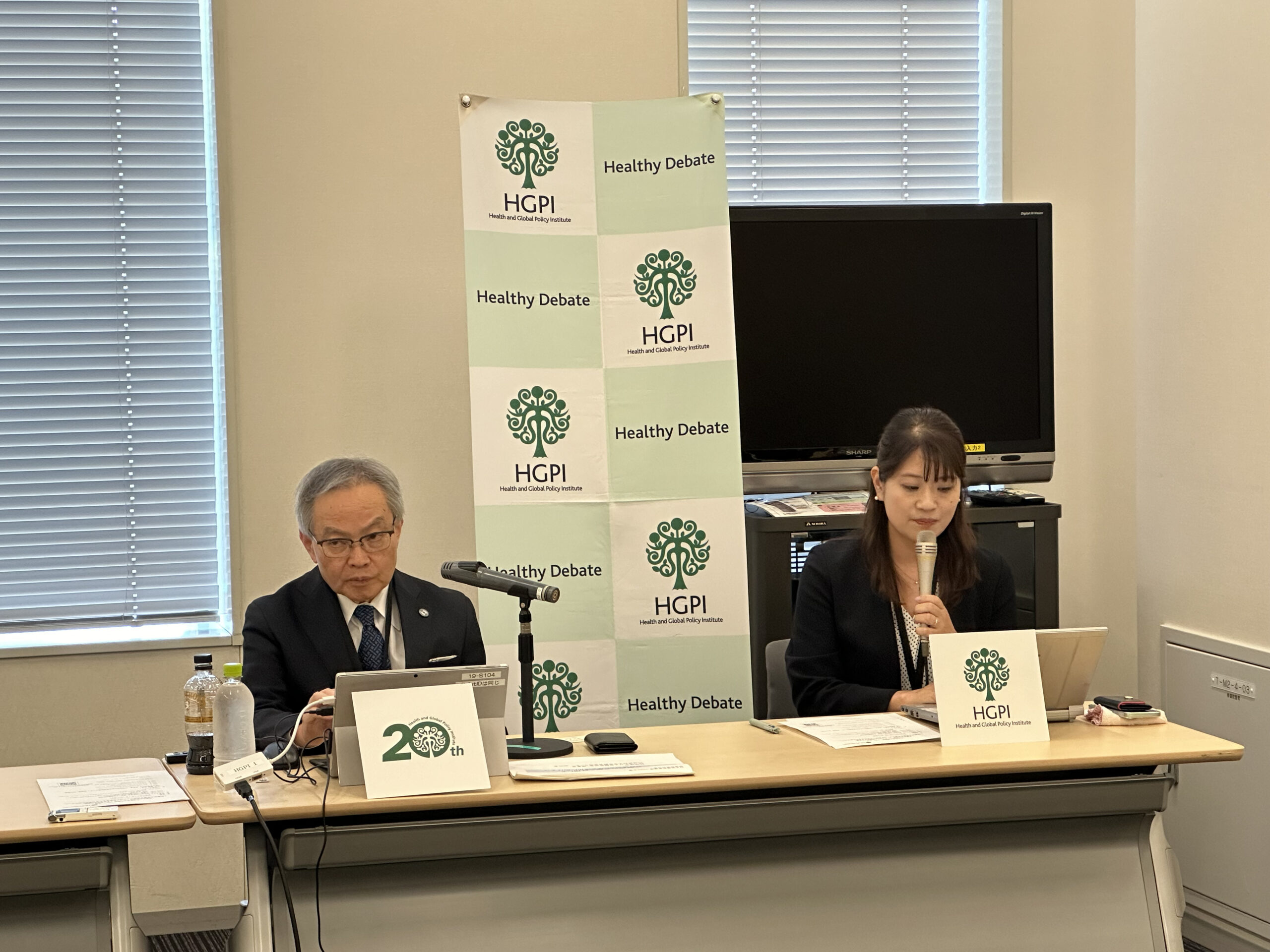 Explanatory introduction and overview of HGPI policy recommendations
Explanatory introduction and overview of HGPI policy recommendations
Eri Yoshimura (Senior Manager, HGPI)
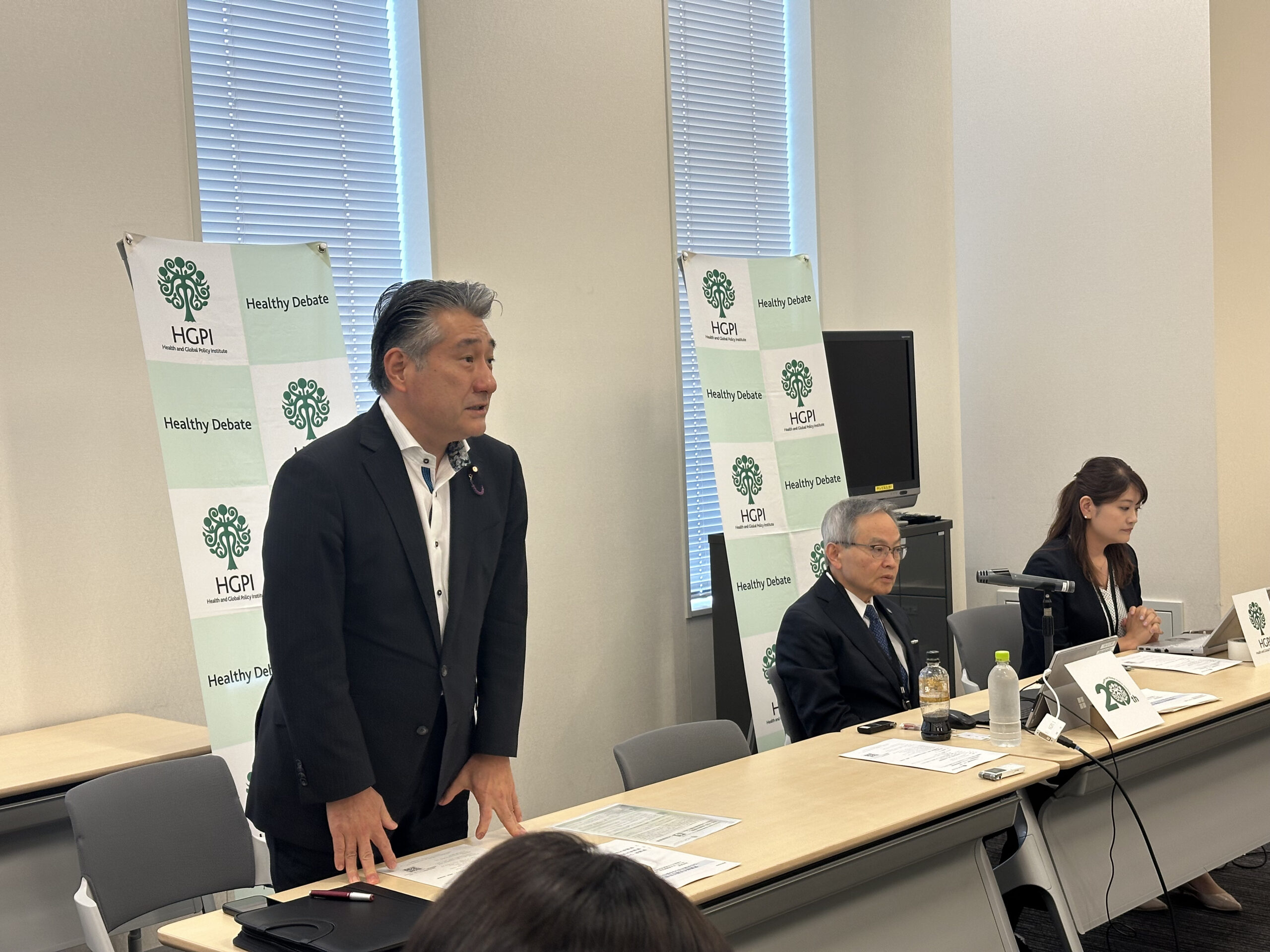 Greetings
Greetings
Masahiro Ishida(Member, House of Councilors)
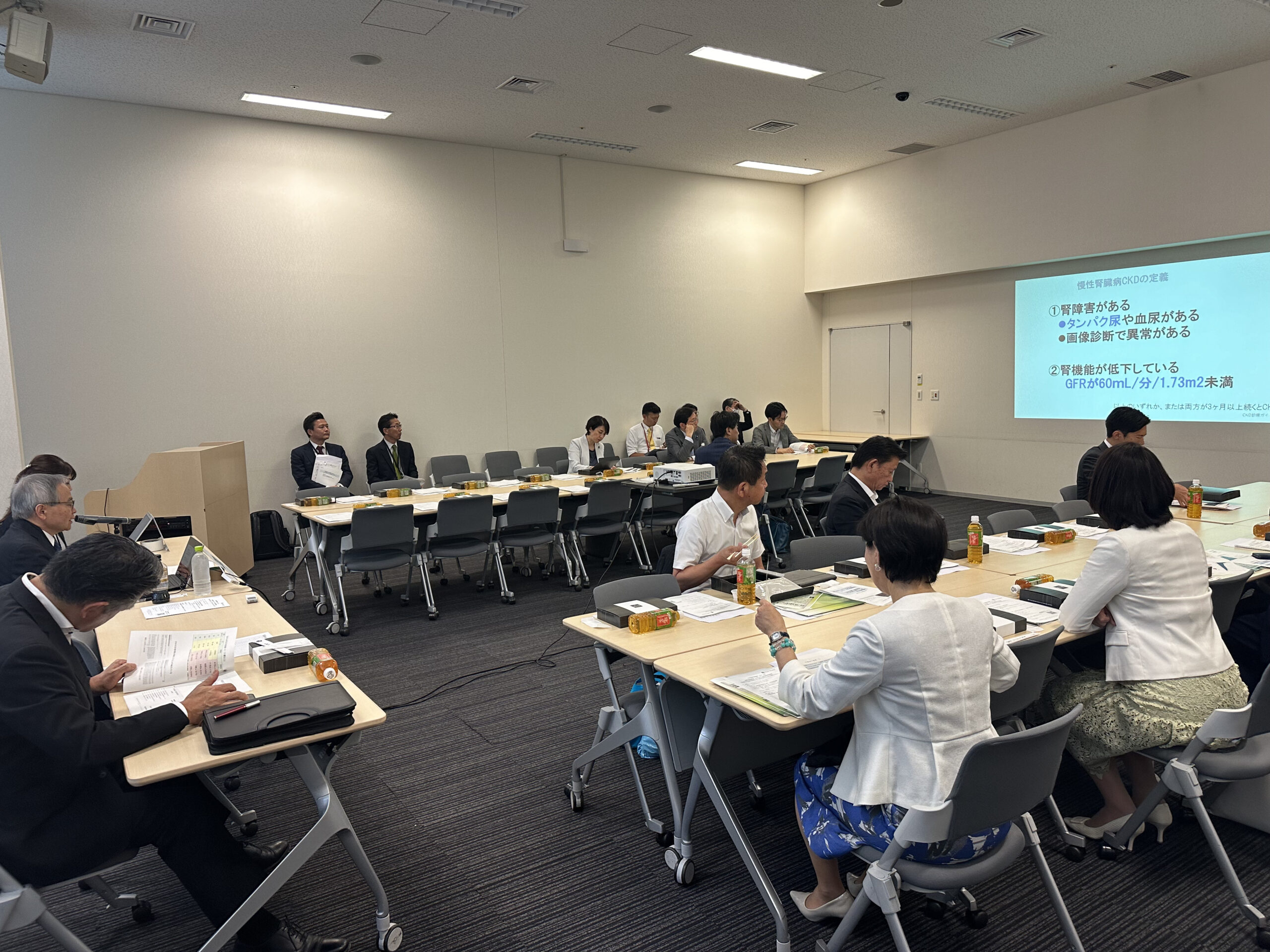 Lecture: “Towards Overcoming Kidney Disease: Strengthening Measures Against CKD”
Lecture: “Towards Overcoming Kidney Disease: Strengthening Measures Against CKD”
Naoki Kashihara (Chairman, Japan Kidney Association / Director and Specially-Appointed Professor, Kawasaki Geriatric Medical Center)
Top Research & Recommendations Posts
- [Research Report] Building a Mental Health Program for Children and Measuring its Effectiveness (June 16, 2022)
- [Research Report] 2019 Survey on Healthcare in Japan
- [Policy Recommendations] Developing a National Health and Climate Strategy for Japan (June 26, 2024)
- [Announcement] A Turning Point Towards Building Green Healthcare Systems (June 5, 2024)
- [Research Report] The 2023 Public Opinion Survey on Satisfaction in Healthcare in Japan and Healthcare Applications of Generative AI (January 11, 2024)
- [Policy Recommendations] Obesity Control Promotion Project 2023 “The Next Steps for Engaging and Cooperating with Patients, Citizens, and Communities for Implements of Obesity Control Measurements” (April 8, 2024)
- [Policy Recommendations] Kidney Disease Control Promotion Project 2023 “Establishing Kidney Disease Control Measures with Patient, Citizen, and Community Engagement and Collaboration” Policy Recommendations, a Collection of Good Practices of Chronic Kidney Disease (CKD) and Control Measures in Local Governments (February 14, 2024)
- [New Report] Policy Priorities for Super-Ageing Japan: Health Innovation and Economic Growth in the COVID-19 Pandemic Era (February 24, 2021)
- [Report and Recommendations] Discussion Points in Healthcare DX Project Expert Panel Meeting (April 2, 2024)
- [Policy Recommendations] Achieving Equity in Multidisciplinary Pain Treatment and Support Systems for Pain Management (March 31, 2023)
Featured Posts
-
2024-10-07
[Registration Open] Planetary Health Expert Meeting “Building the Future of Healthcare: A Vision for Sustainable and Resilient Health Systems with GGHH” (November 5, 2024)
![[Registration Open] Planetary Health Expert Meeting “Building the Future of Healthcare: A Vision for Sustainable and Resilient Health Systems with GGHH” (November 5, 2024)](https://hgpi.org/en/wp-content/uploads/sites/2/ph-20241105-topr2.jpg)
-
2024-10-28
[Registration Open] (Hybrid Format) Public Symposium “Promoting CVD Control Based on the Needs of People Living with or Affected by Cardiovascular Diseases: Towards Effective Implementation of the Second Phase CVD Control Plans” (November 22, 2024)
![[Registration Open] (Hybrid Format) Public Symposium “Promoting CVD Control Based on the Needs of People Living with or Affected by Cardiovascular Diseases: Towards Effective Implementation of the Second Phase CVD Control Plans” (November 22, 2024)](https://hgpi.org/en/wp-content/uploads/sites/2/cvd-ncd-20241122-top.png)
-
2024-10-30
[Event Report] Advisory Board Meeting for Meaningful Involvement Promotion Project “Promoting People with Lived Experience Participation in Policy-Making: Building a Social Foundation for Proactive Engagement” (September 11, 2024)
![[Event Report] Advisory Board Meeting for Meaningful Involvement Promotion Project “Promoting People with Lived Experience Participation in Policy-Making: Building a Social Foundation for Proactive Engagement” (September 11, 2024)](https://hgpi.org/en/wp-content/uploads/sites/2/mip_20240911.jpg)
-
2024-10-31
[HGPI Policy Column] (No.49) From the Mental Health Project ”Changes in the Japanese Mental Health Policy and Future Policy Topics” (The 2nd part ”Issues surrounding long-term hospitalization and future policy topics”)
![[HGPI Policy Column] (No.49) From the Mental Health Project ”Changes in the Japanese Mental Health Policy and Future Policy Topics” (The 2nd part ”Issues surrounding long-term hospitalization and future policy topics”)](https://hgpi.org/en/wp-content/uploads/sites/2/column-49-top.png)




